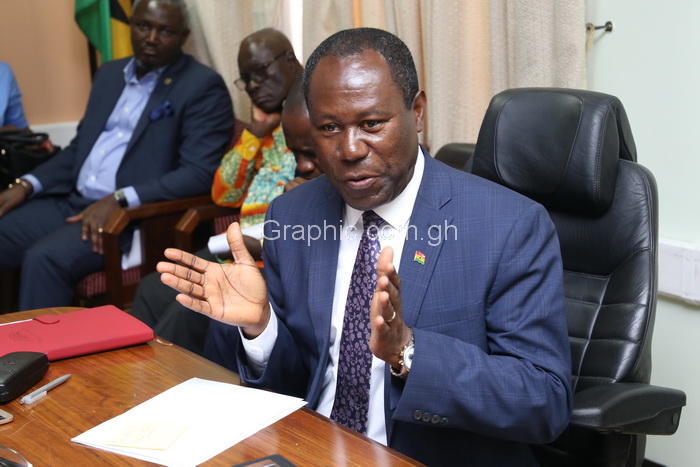
COCOBOD, CSS in tango over payment to cocoa farmers
The Ghana Cocoa Board (COCOBOD) and the Centre for Socio-economic Studies (CSS) are engaged in a tango over delays in the payment for cocoa beans purchased from farmers.
While the CSS is accusing the COCOBOD for delays in paying for cocoa purchases, the COCOBOD has denied the charge, claiming that at the beginning of the 2018/2019 season it provided GH¢1.3 billion seed funding for local licensed buying companies (LBCs).
The CSS believes that by starving the LBCs of seed funds for the 2018/2019 cocoa season, the ability of the companies to also pay cocoa farmers promptly for their produce has been affected.
Reacting to the accusation in an interview in Accra yesterday, a manager at the Office of the Chief Executive of COCOBOD,
Mr Fiifi Boafo, said in addition to the GH¢1.3 billion seed funding to local licensed buying companies (LBCs), COCOBOD had also paid GH¢1.4 billion to the LBCs for cocoa beans that had been supplied this season.
Funds
In September this year, COCOBOD secured US$1.3 billion from a consortium of 21 banks to finance cocoa production and purchases in the 2018/19 cocoa season.
Although the first tranche of US$650 million hit the account of the Bank of Ghana (BoG) in October, with another tranche of US$650 million expected at the end of this month, the CSS said COCOBOD had refused, neglected or failed in its obligation to allocate the LBCs portions of the loan as seed money.
CSS
In an interview with the Daily Graphic on Tuesday, a Senior Fellow at the CSS, Mr Seth Doe, said the development had compelled some of the LBCs to even source for loans from banks at considerably higher interest rates to buy produce this season.
“Again, in cases where the LBCs have taken loans, purchased and delivered cocoa beans to COCOBOD, COCOBOD has failed to pay these local LBCs. These developments explain the unusual delays in paying cocoa farmers this crop season,” he stated.
He said the development was also an incentive for cocoa smuggling, which would adversely impact on the country’s projected revenue from the sector.
Challenges with raising funds
Mr Doe said the centre had reached a couple of district managers of the various LBCs who were all facing challenges with raising funds to purchase cocoa beans from farmers.
He said the money COCOBOD had provided for the LBCs was to pay old debts and not procure new beans for this season, which started in October.
“Cocoa farmers are complaining bitterly but the LBCs have been unable to openly come out for fear of victimisation by COCOBOD,” he stated.
Immediate steps
Mr Doe, therefore, urged the government and COCOBOD to provide prompt and adequate explanation for those developments and also take immediate steps to make funds available for the prompt settlement of all financial obligations owed local LBCs and, in effect, cocoa farmers and banks to restore confidence in the cocoa sector.
He also appealed to the Finance and the Agriculture committees of Parliament to intervene.
“This must be taken with more seriousness to avert any negative socioeconomic implications on rural livelihoods and hardworking cocoa farmers,” he stated.
Cocoa areas
Meanwhile, checks by the Daily Graphic in cocoa growing areas confirmed that many societies (cocoa sheds) from the Western, Eastern, Central, Ashanti and Brong Ahafo regions are agitated and have threatened to sell their produce to the ready market in neighbouring Cote d’Ivoire.
Some of the farmers who spoke to the Daily Graphic said although they had been supplying cocoa marketing clerks with beans, the clerks had not been able to reciprocate by paying in full the number of bags they purchased.
“Last month, for instance, I supplied all my cocoa to the PBC, but as we speak now they have not given me anything for the produce. Any time I ask the officers, they tell me COCOBOD has not sent the money or the money it sent is too small to pay for all the bags,” a farmer at Sefwi Boako, who gave his name as Egya Boateng, said.
He called on stakeholders in the sector to quickly intervene, else Ghana risked losing its status as the second largest producer of cocoa after neighbouring Cote d’Ivoire.
